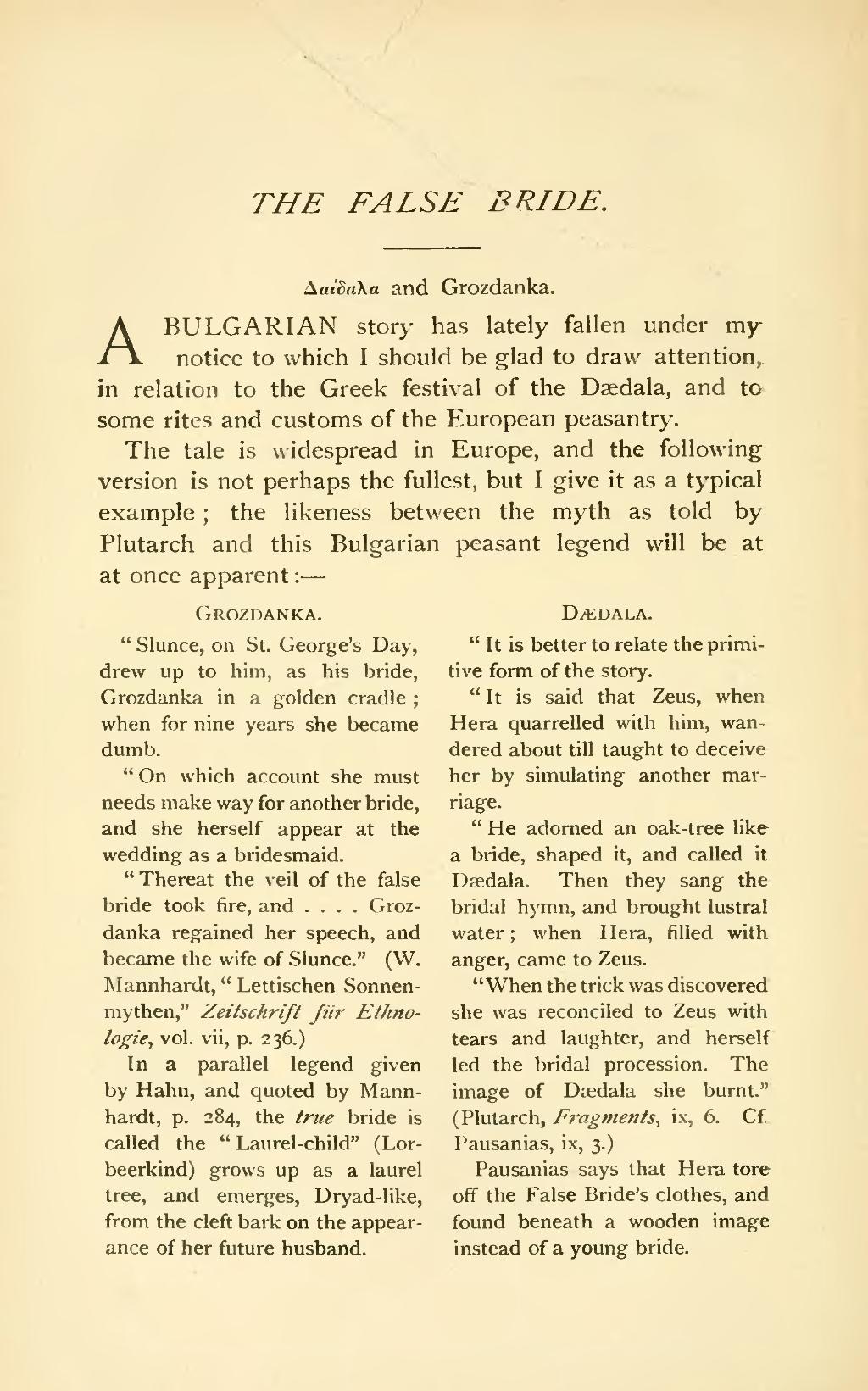THE FALSE BRIDE.
Δαίδαλα and Grozdanka.
A BULGARIAN story has lately fallen under my notice to which I should be glad to draw attention, in relation to the Greek festival of the Dædala, and to some rites and customs of the European peasantry.
The tale is widespread in Europe, and the following version is not perhaps the fullest, but I give it as a typical example; the likeness between the myth as told by Plutarch and this Bulgarian peasant legend will be at at once apparent: —
|
Grozdanka.
|
Dædala. |
|
“Slunce, on St. George’s Day, drew up to him, as his bride, Grozdanka in a golden cradle; when for nine years she became dumb. “On which account she must needs make way for another bride, and she herself appear at the wedding as a bridesmaid. “Thereat the veil of the false bride took fire, and . . . . Grozdanka regained her speech, and became the wife of Slunce.” (W. Mannhardt, “Lettischen Sonnenmythen,” Zeitschrift für Ethnologie, vol. vii, p. 236.) In a parallel legend given by Hahn, and quoted by Mannhardt, p. 284, the true bride is called the “Laurel-child” (Lorbeerkind) grows up as a laurel tree, and emerges, Dryad-like, from the cleft bark on the appearance of her future husband. |
“It is better to relate the primitive form of the story. “It is said that Zeus, when Hera quarrelled with him, wandered about till taught to deceive her by simulating another marriage. “He adorned an oak-tree like a bride, shaped it, and called it Dædala. Then they sang the bridal hymn, and brought lustral water; when Hera, filled with anger, came to Zeus. “When the trick was discovered she was reconciled to Zeus with tears and laughter, and herself led the bridal procession. The image of Dædala she burnt.” (Plutarch, Fragments, ix, 6. Cf Pausanias, ix, 3.) Pausanias says that Hera tore off the False Bride’s clothes, and found beneath a wooden image instead of a young bride. |
